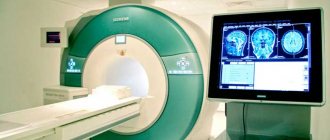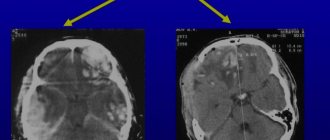Adviсe
- Symptoms of Mood Swings
- Mood swings in women. Common reasons
- Mood swings and cycles
- Mood swings. Other reasons
- Treatment of mood swings in women
- Acupressure for mood swings
The concept of mood swings is often used incorrectly. Women believe that they have swings, but in the end, they have a normal change of emotions - an adequate response to events. If a person becomes angry easily or cries frequently, this does not mean that they have mood swings. He has such a character trait.
We talk about changes if the transition from sadness to joy or vice versa happens instantly, without adequate reasons. More often the change happens in a negative direction. For such a person, changes occur along with increased anxiety and other problems.
Mood swings in women. Common reasons
Typically, the causes of mood swings in women are:
imbalance of hormones due to problems in the body (menopause, pregnancy, etc.); taking oral contraceptives; increased level of tension; puberty; lack of normal sex life, lactation period; there is no balance of substances that are created by the brain and are responsible for the emotional state; quarrels and stress; bad habits; insufficient physical activity.
Hormones are one of the main reasons for such fluctuations in women. Changes during the menstrual cycle, hormonal changes during menopause and pregnancy all cause mood changes. Teenagers are often prone to sudden mood swings during puberty. Women often suffer from PMS.
Women often have to balance work, caring for children, family, etc. This often causes stress and depression, which is accompanied by mood swings. Stressful conditions are associated with failures in relationships, caring for or living with parents, problems in the family or with children.
Our brain produces special substances called neurotransmitters. They are responsible for a large number of emotions: happiness, anger, panic, joy. If the balance of serotonin, dopamine, etc. is disturbed, then frequent changes in emotions and other difficulties in the psychological state result.
Definition of the concept
If you are interested in what is called a sudden change in the emotional state of a person that occurs for no specific reason - mood swings. An individual can smile, and within a minute become irritated. This phenomenon negatively affects the mental health of the individual, complicates normal life activities, and causes problems with those close to them.
Mood swings do not depend on the situation; they cannot be controlled.
This state resembles the natural emotional reaction that appears when a nervous breakdown, crisis, or failure occurs. In this case, both emotional depression and physical malaise may occur. Experts believe that such changes cannot be predicted; they can occur even at the most inopportune moment. Depending on what exactly provokes this phenomenon, additional symptoms will differ. In most cases, the following picture occurs:
- mood swings for no apparent reason;
- problems with appetite, changes in taste preferences;
- sleep disturbance, insomnia;
- feeling of weakness, chronic fatigue;
- the appearance of causeless sadness;
- feeling of insolvency, worthlessness;
- increased nervousness.
If these symptoms persist for more than 30 days, you should seek help from a specialist. If timely treatment is not given, the disease will begin to progress, leading to undesirable consequences.
Mood swings and cycles
There are two cycles that affect mood swings.
A girl who is about to get her period is easy to spot. She loses her temper, often cries, and gets irritated over minor issues. This is easy to understand if you delve into the spiritual side of physiology. Menstruation means that during the current period the egg that would become a child has not survived. And it doesn’t matter whether you dream of a child or not. Nature is designed in such a way that the desire to become a mother is in our subconscious.
And ovulation is a chance to give birth to life. During this period, women are very good, glowing from within. There is a desire to take care of yourself. The girl is more attractive, charming, sexual energy increases, and attraction to the opposite sex arises.
Moon cycles affect women differently. Here everything depends on the Moon in the zodiac sign, as well as on the relationship with this planet, the amount of energy of the Moon. Usually, during the period of growth of the Moon and the full moon, an increase in strength occurs, and the new moon is the period of greatest decline.
There are special days - Ekadashi. This is the 11th day after the new or full moon. Such days are difficult, there are a lot of quarrels, irritations, and misunderstandings. It is best to fast on such a day - at least abstain from meat and legumes.
Nature thought of us to make it easier for people to cope with themselves, both cycles are balanced. During the new moon, ovulation occurs in a woman’s body. And on the full moon - menstruation. Thus, the cycles should ideally be connected, but for many girls and women they are far from the same. Incorrect mixing of cycles causes sharp fluctuations in mood and energy, which does not bring joy to either the woman herself or her loved ones.
It is worth noting that even the harmonization of these cycles does not give an even mood. In any case, there will be periods when you want to be sad and cry. It is best to keep a cycle diary: note the condition and cycle of menstruation every day. After a few months, patterns will become noticeable. Such predictions are useful for both the woman and her loved ones. This way you can almost accurately predict days of big changes.
Treatment of endogenous depression
Since the causes of endogenous depression lie in the deficiency of neurotransmitters and the consequences of this disorder, its treatment is primarily based on the use of medications, but the most effective treatment for any depression is an integrated approach, including not only pharmacological effects, but also psychotherapy, as well as biological correction.
Drug therapy
There are several main types of drugs used to treat endogenous depression: antidepressants are necessary to relieve and achieve remission; anti-anxiety drugs are also often used; in severe cases of depression and the presence of psychotropic activity, antipsychotics are prescribed.
The duration of the course varies depending on the severity of the disorder, its structure, the age of the patient and other characteristics. It is important to note that incorrectly selected therapy can aggravate the condition, so the choice of a specialist must be approached with special care [V. Krylov, 2021].
Drug therapy is used according to three main goals:
- restoring the balance of neurotransmitters;
- getting rid of psychopathological symptoms of depression;
- elimination of somatic pathologies (if any), the presence of which contributes to the development of neurohumoral changes.
Thus, there is an impact not only on the main cause of endogenous depression with antidepressants, but also on the factors accompanying its development, as well as its consequences with other medications, which makes it possible to achieve the maximum effect from pharmacotherapy [D. Kovpak, L. Tretyak, 2013].
Individual or group psychotherapy
Psychotherapy is necessary in order to improve the patient’s well-being during pharmacological treatment, which is often burdened by a number of side effects, and after it, and to teach him to monitor his emotional state.
Working with a psychologist allows you to learn effective strategies for dealing with stress and expressing your emotions, as well as learning self-motivation and self-support. The highest effectiveness is demonstrated by cognitive behavioral therapy, which treats somatic, endogenous, and exogenous depression [V. Krylov, 2021].
Biological correction
Biological correction involves the use of phototherapy - treatment with fluorescent lamps, the light of which replicates the properties of solar radiation and stimulates the production of endorphin and serotonin. Sleep deprivation also shows its effectiveness [V. Samokhvalov, 2002].
Endogenous depression is easily correctable: with properly selected and long-term treatment and regular relapse prevention, in most cases it is possible to successfully get rid of its negative consequences. However, it is important to remember that with endogenous depression, psychotherapy and biological correction are only an addition to drug treatment, which in this case is basic and inevitably necessary.
It is important to note that the psychiatrist provides only pharmacological therapy: he selects the most effective medications in each specific case, observing the body’s reaction to them. For individual and group psychotherapy, you should contact a psychotherapist or clinical psychologist. However, a psychotherapist can prescribe the necessary medications and conduct psychotherapy sessions, so in most cases (with the exception of severe forms of depression), the best option would be to visit this particular specialist.
As for the treatment format, depression treatment is usually carried out in the format of regular consultations. However, sometimes a visit to a day hospital is recommended, and in severe cases, treatment requires going to the clinic for several months for constant monitoring and control of the condition.
However, only a psychiatrist or psychotherapist can provide specific information and draw up an effective individual plan for the treatment of endogenous depression.
And, speaking about methods of treating endogenous depression, we want to dispel the myth about the work of psychiatrists and psychotherapists. Many people are afraid to contact this kind of specialist because they believe that this can lead to a number of negative consequences: for example, some kind of recording will be made, as a result of which they can lose their social status, lose their job and never find one. But this is not so - the diagnosis of “depressive disorder” and other diagnoses that do not pose any threat to other people are not grounds for registering a person and disclosing any information about him to third parties. The only people who can be told about a patient's condition are their immediate family.
In conclusion, we would like to note that since endogenous depression is caused by a genetic predisposition, it is almost impossible to prevent its occurrence. However, prevention of endogenous depression can minimize the risk of its pathological development. If you adhere to a healthy lifestyle, manage stress properly, engage in activities that bring you pleasure, and spend more time with loved ones, endogenous depression will manifest itself in the mildest form and will not interfere with normal life.
Our online program “Human Health” will give you all the necessary knowledge and skills to keep all body systems in good shape and timely monitor and eliminate problems that arise in them, and in the online program “Psychoregulation” you will learn the best techniques for managing your mental states and emotions, learn how to properly relax and motivate yourself, which will allow you to live life to the fullest.
We wish you good luck and sincerely hope that you will carefully monitor your physical and mental health!
We also suggest taking a short test to test your knowledge on the topic of the article:
We also recommend reading:
- Storytelling
- Bipolar disorder: definition, causes, episodes, treatment
- Overcoming spiritual depression
- Post-traumatic stress disorder: briefly about the most important things
- A. Beck Depression Scale: instructions for use
- “Persecution mania”: symptoms, causes, diagnosis and treatment
- How to help your child cope with depression
- Everything is bad! What to do?
- Pros and cons of melancholy
- “Delusions of grandeur”: superiority or problem?
- A Guide to Relieving Depression and Apathy
Key words: 1Healthy lifestyle, 1Psychoregulation
Mood swings. Other reasons
There are other reasons for changes in emotions and mood swings. They are a sign of more serious problems, such as bipolar or anxiety disorder.
With the first problem, a change of emotions occurs at any moment. But the reason is also the trigger - this is what provokes the sharp drop. This includes lack of sleep, jet lag, etc. People note that there is a drastic change only on certain days. To identify triggers, keeping a diary will help, where the events that occurred before the change in mood are recorded.
For individuals who suffer from anxiety disorders, it is anxiety that becomes the cause of powerful stress, so there is a sharp change in emotions. In two cases, the cause of oscillations is:
neurotransmitters and hormones. These substances are the main causes of emotional instability. With such disorders, the hormonal balance changes and the production of neurotransmitters decreases. More often we are sure that all feelings are rational, there are reasons. The reduction of certain substances has no less impact on life than the events around us. Often, the level of substances can be normalized only by taking antidepressants; emotional fatigue. Both problems are the cause of severe fatigue psychologically. The person thinks that he is not capable of self-control, fears things will get worse, that the problem will affect relationships, etc. All this becomes the cause of even more frequent hesitations and panic; other reasons. Due to changes in the psyche, a feeling of isolation arises, which significantly affects the individual’s attitude towards life. Fluctuations in emotions will be the result of a sharp drop in self-esteem; long-term stress not related to mental problems.
Common reasons
Prolonged stress can cause mood swings
- Chemical imbalance of brain hormones, particularly dopamine and serotonin. A person may be visited by a feeling of anxiety, which will be replaced by happiness, and it will be replaced by fear.
- Dementia. There is a decrease in thinking abilities, the ability to express feelings disappears. Such patients need support from their close circle.
- Brain tumor. An extremely rare cause of mood swings. Treatment is carried out by an oncologist; chemotherapy or surgery may be required.
- Head injury, such as a concussion. May cause attention problems and problems with concentration.
- Side effects of medications. Among the drugs, especially anti-hyperactivity drugs, hormone replacement therapy, and antiepileptic drugs are highlighted. If such phenomena are observed, then it is necessary to inform your doctor about this so that he can change the medication.
- Stress. Prolonged nervous tension can lead to mood swings, as well as a feeling that no one around you understands. This condition can provoke the development of mental problems, as well as extreme behavior.
- Puberty. During adolescence, changes in aggressive behavior and good mood are often observed.
- Alcoholism. The effect of alcohol on the central nervous system causes problems with thinking and memory, behavior and mood. Alcohol initially produces a feeling of euphoria, relaxation and excitement, followed by slowness, fatigue and increased sleepiness.
You need to know that a sudden change in an individual’s mood may also indicate a mental illness or mental disorder. In such a situation, you cannot do without the help of a psychotherapist.
- ADHD. In addition to the symptom under consideration, impulsivity and hyperactivity are also present. This happens due to the fact that the actions of a person who has this illness occur on a whim, thoughtlessly, after which the realization of the consequences comes.
- Bipolar disorder. A type of depression in which depressed mood is replaced by increased activity.
- Borderline personality. Such a person can suddenly change from love to hatred, and it is difficult for her to start a relationship.
- Intermittent temper. People suffering from this disease are characterized by sudden attacks of anger that they cannot control. After the release of strong emotions, the state normalizes. Such individuals are dangerous to others, as they can harm them during an attack.
The situation for women
First of all, you should pay attention to physiological factors.
- Problems in the functioning of the endocrine system. There may also be hypothyroidism, a lack or excess of estrogen, testosterone, progesterone, which directly affect the emotional state.
- Lack of activity. The situation when a girl works from home, practically does not leave her home, affects her psyche.
- Seasonal changes. Lack of sunlight leads to frustration and depression.
- Long-term use of antibacterial or hormonal drugs, contraceptives, use of psychotic or psychotropic drugs.
- Smoking and alcohol abuse.
- Chronic illnesses, cardiovascular pathology, AIDS.
- Puberty. Excessive secretion of hormones is characteristic, which can lead to increased tearfulness.
- Premenstrual syndrome. At the end of the menstrual cycle, a woman is visited by strong emotions that influence her behavior. Hormonal changes are to blame. In addition to mood swings, irritability and apathy are observed.
- Pregnancy. Hormonal fluctuations occur in the body. Everything can be complicated by changes occurring in a woman’s appearance, which do not best demonstrate her new appearance. It can also be depressing that she cannot cope with her usual responsibilities. In the case of pregnant girls, if there is no quick change in mood, this is an alarm bell.
- Menopause. Hormonal changes occur again in a woman’s body; there is a decrease in the level of estrogen, which affects the production of serotonin, which regulates mood. During this period, a woman may experience depression with sadness and a state of euphoria with increased joy.
Psychological reasons include:
- nervous experiences, prolonged stress (problems at work, in personal life, in the family);
- the occurrence of nervous exhaustion caused by emotional breakdowns;
- lack of regular intimate life;
- excessive complexes, dissatisfaction with one’s appearance.
In order to understand how to help a woman overcome this condition, it is necessary to determine the root cause of mood swings. Diagnostic measures will include consultation with a doctor and instrumental examination.
Why is it observed in men?
- Responsibility for the well-being of the family, the development of increased anxiety on this basis. A man understands that he must take care of the members of his family, feed and clothe everyone, do everything so that no one needs anything. There is a huge weight on his shoulders that puts a lot of pressure on him. At the moment when some problems arise at work or family members have increased demands, the man becomes tense. No wonder he breaks down from time to time.
- Lack of understanding on the part of the other half. A young man may take problems in his personal life to heart, which will manifest itself with strong emotions. Moreover, at first he will try to keep them to himself.
- Emotional burnout. Most often, problems at work are to blame. Outbursts of aggression may occur, which will be replaced by an indifferent attitude in life.
- Middle age crisis. A man realizes that he has not achieved everything he wanted, he stops liking his job, his family, and he may become depressed. As a rule, this period begins between the ages of 35 and 45 years. There will be mood swings, increased anxiety, apathy, dissatisfaction with life, boredom. If he realizes that the wrong woman is next to him, he may leave the family or take a mistress.
Hormonal imbalance, lack of testosterone production, constant lack of sleep, bad habits, physical fatigue, unhealthy lifestyle, unhealthy diet, lack of vitamins, living in a metropolis - all this can cause mood swings, irritability, emotional instability and depression in a man.
In children
Mood swings can occur in a child of any age. However, they are most frequent during crises.
- three years old - the baby wants to be independent, encounters misunderstandings from adults, begins to rebel, protest against his lack of independence;
- six - seven years old - the child goes to first grade, a change in the usual environment occurs, and the first responsibility is assigned to him; mood swings are especially typical for situations when parents put undue pressure on the baby, place serious hopes on him, and constantly remind him of this;
- Eleven to fifteen years old - the child is actively developing, both physiologically and physically. The time of puberty is the most difficult for him. Many emotions appear that the baby is not yet able to control; problems with peers and difficulties in learning may also arise.
Treatment of mood swings in women
There are certain treatments for mood swings and options for how you can manage them.
Often, conscious control of emotions is difficult. After all, they arise without our will and are often irrational. Initially, do not set a goal to suppress emotions during periods of fluctuation, but to reduce your own reaction to it. Here are some tips:
If you notice that your emotions are changing without reason, then immediately stop what you are doing. Think about what caused the disorder and whether there are adequate reasons for this. Conduct an analysis of events that have happened recently, as well as those that may happen in the near future; If you feel that your mood is beginning to change, then stay alone with yourself as much as possible. Don’t do anything out of emotion, rest for a couple of minutes and think; fake positive emotions. If you feel that your emotions are deteriorating, try to improve them on your own, but do not hold back the negativity, as this will only cause harm. Think of it as a game where you are allowed to feel anger or rage, but it is important to pretend that everything is fine. Don't stop yourself from feeling sad or angry. Because of this, stress and anxiety increase. Give free rein to the negativity inside yourself by showing the positivity on the outside. You'll soon notice that changing your emotions is easier than you thought. If you find it difficult to remain calm, use breathing exercises, drink small sips of water, take a walk; Tell your loved ones that you have mood swings that cause you to behave in ways that are not typical. This gives you a chance to avoid worrying about upsetting your loved ones; consult a doctor. Not everyone is able to cope with fluctuations on their own. If it seems that you cannot restrain yourself, then you should seek help.
Other tips include lifestyle changes, diet, therapy or alternative therapies. Let's look at them too:
lifestyle change. A healthy lifestyle is an important element in the treatment of emotional fluctuations. It contains an adequate emotional climate in relationships, avoidance of stress, peace, healthy sleep. Make sure you have time for exercise in your daily routine. Swimming, walking, dancing are all great helpers. diet also plays a significant role. Try not to smoke, eat healthy, and don't drink alcohol. You will need more nutrients in your diet; therapy. Constant and inexplicable fluctuations interfere with normal life. To get rid of it, learn how to control yourself. There is often a need to undergo therapy: hormonal replacement therapy, to correct behavior, cognitive therapy; alternative therapy. This includes aromatherapy, acupuncture, and homeopathy. This helps cope with fluctuations in women's moods. Yoga and meditation will be a great help.
If your problem is not so pronounced, and changes only slightly interfere with the joy of life, then you can overcome this condition yourself. Here are some proven methods:
get enough sleep. Recently, American scientists have established a direct connection between normal 7-8 hours of sleep and mood. In addition, it is important to adhere to a sleep schedule, in other words, go to bed and get up at the same time every day; The bedroom should be arranged so that it is dark during sleep. It is this environment that will help the body produce melatonin, which is necessary for normal sleep, protection from depression and fluctuations in emotions; If you suffer from fluctuations, then your diet should help improve brain health. Here the following vitamins will come to the rescue: B, E, C. Among the substances: zinc, magnesium, Omega-3, calcium. Frequent changes in sugar levels also cause changes in emotions. It is important to control your intake of foods containing sugar; Natural substances will also come to the rescue: lemon balm, chamomile, mint. They reduce anxiety. Valerian tincture brings many benefits. Homeopathy fights anger and irritability. Thistle and raspberries help women with hormonal changes; It is important for everyone who suffers from fluctuations in emotions not to forget about physical activity. Balanced exercise will release the dose of endorphin required for calm and well-being. Plus, exercise is a great sleep aid; The main point is the correct systematization of life. The diary of emotions, which was already mentioned above, will help for this.
Why is low mood dangerous?
Depressed mood can sometimes be accompanied by suicidal thoughts, which poses a direct threat to life.
In any case of prolonged and persistent decline in mood, it is necessary to consult a psychiatrist, and after relief of acute symptoms, work with a psychotherapist or psychologist.
For help, please call:
+7(965) 152-76-09
All materials on the site are presented for informational purposes only, approved by certified physician Mikhail Vasiliev, diploma series 064834, in accordance with license No. LO-77-005297 dated September 17, 2012, by a certified specialist in the field of psychiatry, certificate number 0177241425770.
Acupressure for mood swings
A simple acupressure massage can help cope with mood swings. You need to repeat it every day after and before bedtime. Sit comfortably on a chair, place your hands on your knees, palms down. The point that needs to be massaged is located under the ring fingers of our hands when they lie on our knees. This is a small hollow. Massage it in circular light movements for 3-5 minutes. Repeat the exercise in the morning after sleep, and in the evening before bed. In the morning, the massage is done clockwise, and in the evening - vice versa. This simple method is very effective and helps cope with mood swings and depression.
Mood Journal
| Date Time | Change of mood | External events (who, what, where, unusual circumstances) | Internal experiences (thoughts, fantasies, memories) |
If you feel a change in mood, write down it (for example, neutral → sad), external events (what you did, where, with whom) and internal experiences (what you thought, dreamed or remembered).
Patients often think that depression (anger, fear) is not caused by anything, and therefore it seems to them that they are going crazy or have lost control over the situation. But if you try to figure it out, look beneath your defensive reactions, you usually discover that there are all reasons for the sensations. Realizing this is the first step to doing something about it.
Changing yourself in this way is hard work. But if you are able to laugh at yourself, it will be easier.
Cyclothymia: why mood changes often
Every person, having come into contact with a tragic loss or experiencing a major failure, becomes upset, worried, grieving, sad, and often despairs. At the same time, when we reach heights and receive rewards for our achievements, we rejoice, rejoice, delight, triumph, and enjoy. Changes in mood, which occur depending on objective reasons and actual changes, are a normal natural state for any living creature. However, there is a category of people whose mood swings are observed excessively often and spontaneously. Such persons, for no apparent reason, move from heartfelt laughter to miserable tears, from affectionate delight to angry anger. These people can be optimistic and energetic one moment, and then lose interest in life and feel apathy the next. Moreover, such mood swings can occur several times a day. Within one day, the world around us turns from a bright, joyful, full of plans and hopes into a dark and terrible abode of Satan. In this case, we can assume that the person has a mental disorder called cyclothymia. Cyclothymia: general information
The term “cyclothymia” is commonly understood as an excessively frequent causeless change in a person’s emotional state.
Cyclothymia is characterized by sharp jumps in activity - from depression (dysthymia) to excitement (hyperthymia). A person suffering from cyclothymia is characterized by sudden changes in mood - from melancholy and apathy (depressive state) to euphoria (hypomanic effect). People with cyclothymia experience an inadequate, overly intense reaction to events occurring in the environment. In situations of a positive nature, such individuals demonstrate great joy; in situations of a negative nature, their emotions are filled with deep tragedy. With positive changes, they are overly talkative and restless; with negative events, people with cyclothymia can fall into a stupor. They explode like a powder keg if even a tiny obstacle gets in their way. The smallest problem, for example, the breakdown of an electric kettle, can lead them into a state of depression, just as finding ten kopecks can cause euphoria. Close people, work colleagues, and friends consider such individuals to be hot-tempered, fickle, and often strange. Indeed, their nervousness, irritability, and fussiness are very noticeable to others. Their actions and decisions are difficult to predict, their desires and needs are difficult to anticipate, their goals and motives are difficult to understand. Such persons are unable to control themselves, cannot follow one line of behavior, and do not keep their promises. In a word, when communicating with people suffering from cyclothymia, it is impossible to protect yourself from the flurry of surprises they create. Another feature of cyclothymia is the following: fluctuations in the emotional state can occur in a certain sequence. A person may alternate between a period of high spirits, followed immediately by a period of depression. Such phases of the emotional state can be double. Also, between these polar states, a phase of mental well-being may occur, when a person’s mood remains constant and does not fluctuate due to minor reasons. It is worth noting that the duration of each cycle is individual for each person, as well as the intensity of the phases of depression and mania. It is precisely because the subject periodically experiences two polar emotional states that some doctors consider cyclothymia to be a mild form of bipolar affective disorder.
It should be noted that people suffering from cyclothymia have a high risk of developing manic-depressive psychosis. Therefore, at the first signs of unjustified and illogical mood swings, it is advisable to consult a psychotherapist and undergo a course of treatment. Cyclothymia is conventionally divided into several categories depending on the predominance of one or another emotional status.
This affective disorder can occur in the form of vital, apathetic or anesthetic depression. Cyclothymia can develop in people regardless of their gender and age, but most often this type of depression manifests itself in adolescence. Since the features of the juvenile stage include a lack of stability in emotional status, the signs of cyclothymia remain unattended and, accordingly, without treatment. According to the World Health Organization, cyclothymia accounts for about 5% of all cases of affective disorders. Most of the patients are female, which can be explained by the specific tendency of women to melancholy and their strong impressionability. Doctors suggest that the incidence rates of cyclothymia are not accurately determined, since the unexpressed symptoms of the disorder are ignored by many contemporaries. This may explain the sad statistics indicating that affective bipolar disorder is diagnosed in people at late stages, which complicates the process of treating the disease. Cyclothymia: why your mood constantly changes
The reasons for the formation and aggravation of cyclothymia have not been sufficiently studied.
At the same time, there are a number of tested hypotheses about the origin of affective disorders. One of the most authoritative versions is the theory of genetic predisposition to mental disorders. A study of the family history of patients with cyclothymia confirms that the vast majority of patients had relatives suffering from depressive conditions. The risk group includes people whose parents or one of them suffered from manic-depressive psychosis. However, at the moment it has not been possible to identify the gene that is responsible for the formation of psychotic reactions. The second hypothesis suggests that the cause of the development of cyclothymia is a failure in the production of neurotransmitters and metabolic disorders in the body’s neurotransmitter system. Very often, cyclothymia starts against the background of diseases of the endocrine system. An imbalance of hormones leads to lability of a person’s emotional status. Such hormonal imbalances are determined during pregnancy and childbirth, at the stage of puberty, and in the menopausal phase. Often the cause of the development of cyclothymia is the use of certain pharmacological drugs. It has been established that the use of steroids has an extremely negative effect on a person’s mood, provoking his jumps. Symptoms of cyclothymia can be caused by the use of narcotic painkillers as analgesia. Another likely cause of cyclothymia is an imbalance of certain chemicals and compounds in the body. Changes in the concentration of iron and calcium can initiate depressive states. Cyclothymia often develops after severe infectious and viral diseases, especially if a foreign harmful agent has a negative effect on brain cells. Also, the cause of this type of depression can be long-term chronic diseases, especially those that are accompanied by intense pain. Quite often, mood disorders accompany serious heart disease. Cyclothymia can also develop in patients who are forced to stay in a hospital for a long period and must remain in bed. Lack of positive emotions, daily monotony, lack of social contacts have a negative impact on a person’s emotional status. The foundation for the emergence of cyclothymia is the specific personal constitution of the individual. At risk of developing depression are people who exhibit accentuated traits: nervousness and irritability, suspiciousness and impressionability, touchiness and vulnerability. The reason for the development of depression is a person’s low self-esteem, the presence of ideas about his own inferiority, uselessness, and worthlessness. Also, the basis for the formation of affective disorders are character flaws that are the result of improper upbringing in childhood. Excessive parental care, excessive attention to the child, lack of reasonable restrictions, satisfaction of all his whims and whims negatively affect the upbringing of a full-fledged personality. At the same time, excessive pickiness, exactingness, and criticality shown by parents towards their offspring does not allow a happy personality to grow, preventing the formation of an adequate self-esteem of a person. According to psychologists, the most harmful way to raise a child is the pendulum-shaped model, which implies the absence of a unified strategy of behavior among parents, sharp fluctuations from prohibitions to connivance, and the lack of a common opinion among mom and dad regarding measures of reward and punishment. Such inconsistency in the actions of parents is destructive for the psyche of a fragile individual. A common cause of cyclothymia is the effect of stress factors, both single and intense, and regular and chronic. Any mental trauma can cause regular mood swings: divorce, death of a loved one, major loss of one’s own property. Cyclothymia is also provoked by chronic stress, for example: living below the poverty line, inability to repay loan obligations, unfavorable atmosphere in the family. Cyclothymia is often recorded in people who voluntarily or forcibly stay in critical, unsafe situations. For example, those individuals who live in a war zone are at risk of experiencing the pangs of depression. It should be noted that stressors are not only negative events. Positive events that happen suddenly can also cause disruption in the emotional sphere. Thus, the cause of cyclothymia can be both one’s own pregnancy and the subsequent birth of a child. Any change that globally affects a person’s habitual way of life can initiate mood disorders. The obvious cause of cyclothymia is alcohol abuse and drug use. The toxic components of alcohol and drugs destroy the human nervous system and have a detrimental effect on the psyche. As addictions become more serious, all mental processes undergo enormous changes. Against the background of chronic alcoholism and drug addiction, a wide range of disorders debuts, among which depressive states take the lead. Cyclothymia: how the disorder manifests itself
Symptoms of cyclothymia are almost identical to the signs of manic-depressive psychosis.
However, compared to bipolar disorder, they are less intense and can be eliminated in a shorter period of time. The main criterion for determining the diagnosis of “cyclothymia” is the patient’s demonstration of symptoms of two opposing conditions: a mild depressive episode and a hypomanic phase. Moreover, the transition from one state to another does not occur quickly and abruptly, but gradually and smoothly. However, between the two polar stages there may be a gap of mental well-being. Depressive episode The main symptom of this stage is the dominance of a person’s sad, melancholy, pessimistic mood. The subject appears sad and melancholic, complaining that "the cats are scratching at my soul." A decrease in usual energy and a decrease in his social activity becomes noticeable. The decline in labor indicators in the professional sphere is especially noticeable. A person with cyclothymia lacks inspiration to perform previously enjoyable tasks. He fulfills his duties through force. Moreover, he often cannot complete the work he has started due to excessively rapid fatigue and difficulties in concentrating on one job. Another symptom of cyclothymia is a person’s lack of “excitement” for life. Nothing interests you yet; previously pleasant moments do not bring pleasure. He refuses exciting activities and does not attend entertainment events. A certain social isolation of a person becomes noticeable to those around him. A patient with cyclothymia in the depression phase stops communicating with friends, does not visit relatives, and avoids collective Sabantuys. In such a depressed state, the individual prefers to be alone with himself, and often does not cross the threshold of his monastery at all. An important symptom of a depressive episode with cyclothymia is the subject’s underestimation of existing abilities and denial of his own talents. A person becomes convinced that he has nothing to be proud of in this life, that he cannot achieve any heights. He evaluates his past extremely negatively, interprets the present skeptically, and sees the future in dark colors. His thinking and perception of reality is pessimistic. A patient with cyclothymia in the depressive phase neutrally or negatively interprets those phenomena that in a normal mood are considered joyful and pleasant. In a state of depression, various sleep problems are very common. A person cannot fall asleep for a long time in the evening hours. Having fallen asleep, his night's rest is deprived of peace: he often awakens from nightmares and then again cannot fall asleep for a long time. In the morning he feels overwhelmed and exhausted, because his sleep did not bring energy and feelings of freshness. During the day he is distracted and lethargic, as he is overcome by drowsiness. A significant deterioration in all cognitive and mnestic functions can also be determined. A depressed person has difficulty understanding new information and is unable to conduct a quick and in-depth analysis of data. Many patients with cyclothymia complain that it is difficult for them to find the words to respond to their opponent. They describe being unable to retrieve necessary information from memory. In the depression phase, the person’s speech also changes, becoming inexpressive, monotonous with a characteristic slow tempo. The processes of motor activity also slow down. Some patients describe that it is difficult for them to raise their arm, that every step is difficult for them. They do not feel physically healthy, feeling muscle flaccidity and lack of tone. A particularly dangerous symptom of a depressive episode is the appearance in a person of obsessive, irresistible thoughts about his own guilt. Patients with cyclothymia and melancholia feel worthless and useless to society. They are haunted by a feeling of hopelessness, helplessness, and futility. However, suicidal activity with this type of depression occurs extremely rarely. If a patient has thoughts of suicide, it can be assumed that he has a more severe disorder than cyclothymia. Hypomanic stage The main symptom of the hypomanic phase is a significant increase in a person’s mood, up to euphoria. The subject is in a state of joy, carelessness, complacency, and such sensations do not correspond to the real state of affairs. He is distinguished by unjustified cheerfulness and enthusiasm for phenomena that are interpreted in society as neutral or negative. He is optimistic about his past, positive about his present, and predicts a great future. Significant psychomotor agitation, facial and motor animation becomes noticeable. The patient's speech is intermittent, illogical, and spoken at a very fast pace. Characteristic are short phrases, often not spoken in full, but interrupted in the middle of the statement. A person in a state of cheerfulness often selects colorful words and piles up bright and absurd speech structures. The patient's facial expressions and gestures are very expressive. Being in a state of elation, a person cannot sit in one place and maintain the adopted position for a long time. He shifts from foot to foot, takes steps in place, or, without finishing the conversation, leaves in an unknown direction. When communicating with such a subject, one is struck by his familiarity, unceremoniousness, and irony. The creative and productive activity of the patient in the hypomanic phase of depression increases significantly. However, human activity is devoid of organization, orderliness, and purposefulness. A person can grab onto several tasks at the same time, but does not bring any of them to completion. During the hypomanic stage of cyclothymia, the subject experiences inappropriately inflated self-esteem. During this period, a person overestimates his own capabilities and inflates the size of his achievements. Some people may have ideas of their own greatness, but they never reach the proportions of delusion. Due to a decrease in criticism of what is happening, the absence of a natural “brake” in mental processes, a person in the hypomanic phase embarks on various adventures. His need for social contacts increases, so he makes many new acquaintances, often with rather strange and immoral personalities. The patient’s need for intimate contact also increases, but he is promiscuous and unstable in his relationships, often changing his sexual partner. Another characteristic symptom of the hypomanic phase of cyclothymia is a significant decrease in the need for sleep. Such a person can play tricks all night in a club and, without sleeping for an hour, go to work in the morning. In this state, people often begin to abuse alcohol and try drugs. It is manic excitement that pushes a person to participate in gambling and invest in adventurous ventures. Some people in the hypomanic phase of cyclothymia experience an uncontrollable and misunderstood passion for wandering. They begin to wander aimlessly, they may change their place of residence and migrate to another country. Other people join sects and begin to preach wondrous religious cults. Third parties begin to acquire a lot of unnecessary and useless things, joining the ranks of shopaholics and Plushkins. However, at the end of the hypomanic phase, such passions, as a rule, disappear with the exception of addictions - alcoholism and drug addiction. Cyclotimiy: How to get rid of mood jumps
What to do if the mood often changes? The first step is to visit a therapist and establish a correct diagnosis. When confirming the presence of cyclotimia, the treatment is built on the basis of the dominant principle: relief of the symptoms of the current phase, preventing the onset of the polar state, and the prevention of relapse. Treatment of this form of depression most often occurs on an outpatient basis, without placing the patient in the hospital department of the hospital. Such a step is justified by the fact that the subject has the opportunity to fully function in society, he does not take the chance of leading the usual rhythm of life. The treatment regimen of cyclotimia is represented by two components:
- taking pharmacological drugs;
- psychotherapeutic influence.
It should be noted that medications prescribed for cyclothymia are taken over a fairly long period. In this case, it is extremely important to strictly follow the doctor’s recommendations: choosing a medication on your own can lead to a significant aggravation of the symptoms of the disorder. The basis of drug treatment is the latest generation of antidepressants with high therapeutic activity and no risk of transition to the opposite phase. In a hypomanic state, it is recommended to take mood stabilizers that have a prolonged effect. To get rid of emotional fluctuations, it is advisable to use mood stabilizers. With severe psychomotor agitation, the patient is prescribed antipsychotics. Psychotherapeutic treatment is aimed at solving a number of important problems, among which the first place is given to psychological education. The therapist’s task is to prevent the development of auto-aggressive actions in a depressive episode and to prevent the formation of addictions in the hypomanic phase. The doctor explains to the client the features of his condition, tries to discover the true cause of the disorder, and gives arguments for continuing psychotherapeutic treatment. In the process of psychotherapy, the patient learns the skills to prevent the return of a depressive or hypomanic state without damaging his personality and without harming his health. He learns ways to independently eliminate the manifestations of the polar stages. Is it possible to get rid of mood swings on your own without turning to doctors for help? In mild forms, the disorder can be corrected without medical intervention. However, success can only be achieved if a person is able to recognize his individuality and is ready to expend energy on transforming his own personality. To get rid of cyclothymia, the subject must find suitable ways to relieve psycho-emotional stress and put relaxation techniques into practice. A good help in overcoming cyclothymia is wushu gymnastics with its excellent exercises that restore the balance of mental processes. A good option for getting rid of cyclothymia is a daily yoga practice. This Eastern philosophy is structured in such a way that a person can fully understand his personality and transform his inner world. We should not forget about the benefits of regular breathing exercises. In the case of cyclothymia, the following statement is true: a person’s mental health is in his hands. By getting to know oneself, discovering and eliminating the cause of the disease, changing the way of thinking, giving oneself proper rest, a person will say goodbye to mood swings that interfere with a full life.
Classification of pathology
Mood swings can vary in nature. Experts identify several such “scenarios”
:
- Cyclothymic mood swings
. These are affective disorders that may contain signs of hypothymia (low mood) and hyperthymia (pathologically elevated mood). In the first case, this is reduced self-esteem, indifference to everything around, lack of motivation, irritability, sleep disturbances, self-blame, decreased attention and memory. In the second case - energy, hyperactivity, short sleep, too much euphoria and talkativeness, increased excitability. - Depressive swings
. They may appear temporarily and go away within a short time, but sometimes they drag on for many years. Depression is a serious illness that comes in a number of varieties. In general, it is characterized by attacks of low, depressed mood, irritability, etc., up to thoughts of suicide. - Bipolar swings
. They are better known as manic-depressive psychosis. In this case, sharp mood swings constantly occur: unbridled joy is replaced by the same uncontrollable crying, enormous productivity and creative spirit are replaced by emptiness, fatigue, depression and laziness. Manic-depressive psychosis can take severe forms, which are fraught with suicide or threats to others.









